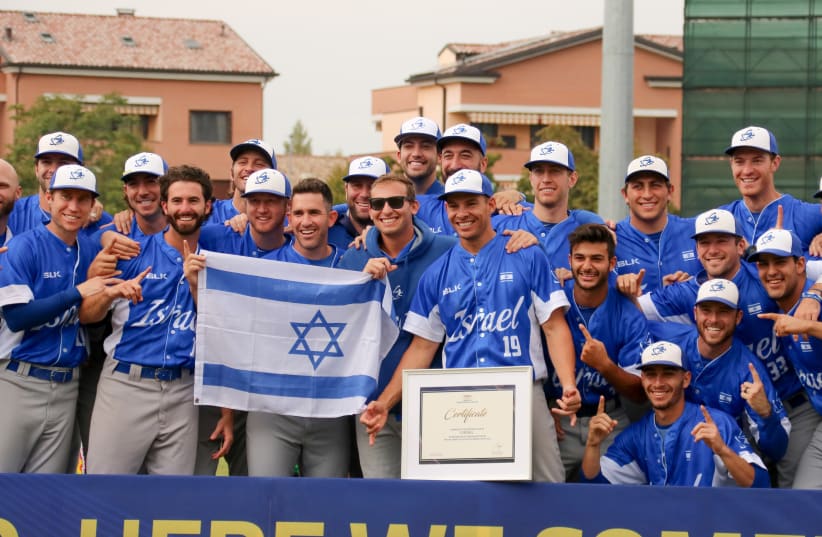The Olympics Games in Tokyo this year are clearly suffering from the effects of the worldwide pandemic. Even the way they are still called the 2020 Olympics reflect the way they were postponed by a year.
For Israel, the Olympics will always carry extra emotional baggage. No one can – or should – forget the murder of the 11 Israelis by Palestinian terrorists at Munich in 1972. It was therefore poignant and welcome to witness a moment’s silence during the opening ceremony in tribute to the slain athletes and coaches, the first time such a tribute was paid in the nearly 50 years since the atrocity.
The Munich massacre was a ghastly reminder of the worst side of mixing sports and politics. The Black September movement hijacked the games to put the Palestinian cause on the world map. No international competition, however, has ever been safe from the threat of terrorism since.
There have been other, less dramatic, signs of Israel’s enemies using sports to attack or delegitimize Israel.
It is hard to forget the sight of Egyptian judoka Islam El Shahaby refusing to shake the hand of his Israeli opponent, Or Sasson, at the 2016 Games in flagrant violation of the Olympic spirit and judo convention after Sasson beat him at the Rio Olympics.
Fortunately, the International Judo Federation’s executive committee takes such incidents seriously. This week it suspended the Olympic accreditation of Algerian judoka Fethi Nourine and his coach, Amar Benikhlef, after the judoka refused to compete against an Israeli. Nourine was meant to face off against Sudan’s Mohamed Abdalrasool on Monday in his first bout, but bowed out as it could have meant facing a possible second round against Israel’s Tohar Butbul. Previously, Nourine pulled out of the 2019 world championships in Tokyo against the same background.
Nourine and Benikhlef gave individual statements to the media announcing their withdrawal from this week’s competition to avoid meeting an Israeli athlete during the event, the IJF said in a statement.
Nourine’s withdrawal was “in total opposition to the philosophy of the International Judo Federation,” it said. “The IJF has a strict non-discrimination policy, promoting solidarity as a key principle, reinforced by the values of judo.”
Iranian competitors regularly suffer a “diplomatic headache,” bowing out of competitions in which they might end up competing with (and losing to) the Israeli team. And the IJF has placed a four-year ban on the Iranian team after a member, Saeid Mollaei, revealed he had been ordered to lose matches or withdraw from competitions to avoid facing Israelis.
The friendship that has since developed between Israeli judoka Sagi Muki and Mollaei is heartwarming in this context and Mollaei earlier this year came to Israel to compete in the Judo Grand Slam competition held in Tel Aviv. Sadly, Mollaei now competes on the Mongolian team, having been forced to leave the Islamic Republic.
We are always delighted to see Israelis winning Olympic awards – and the bronze by 19-year-old Avishag Semberg in taekwondo was a great start. But there is something more important. It might be a cliché, but there is more to sports than winning.
It wasn’t so long ago that Arab Gulf states refused to acknowledge the identity of Israeli teams competing in the region, insisting that there be no sign of the Israeli blue-and-white flag and “Hatikvah,” the national anthem, was not played even if an Israeli won a medal.
Following last year’s Abraham Accords, those days are fortunately gone. Not only do Israelis compete as Israelis in the United Arab Emirates but it is even accepted as normal – as it should be. Even more significantly, last month, “Hatikvah” was played in Qatar – a country with which Israel still does not have a peace agreement – after an Israeli won a gold medal at the Artistic Gymnastics World Cup.
We hope that these Olympics continue to provide good news and good sporting events and that politics can be left out. It should be normal to see Israelis competing against all other countries. In sports, and particularly the Olympics, competitors should be opponents – not enemies.
